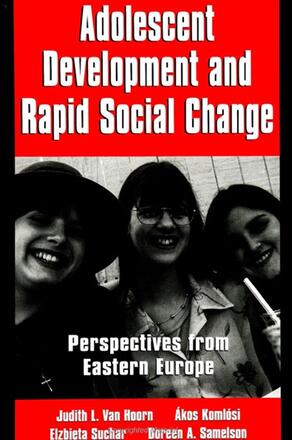
Adolescent Development and Rapid Social Change
Perspectives from Eastern Europe
Alternative formats available from:
Hungarian and Polish adolescents discuss the recent social, political, and economic transitions in their countries and how these events have impacted their communities, homes, and personal lives.
Description
In times of dramatic social changes, adolescents are the last children of the old system and the first adults of the new. The Hungarian and Polish adolescents documented in this book can be considered the omega-alpha generation of the great social, political, and economic changes that occurred during the late 1980s and early 1990s in central and eastern Europe. Adolescent Development and Rapid Social Change addresses the psychological consequences for these young people who came of age during a time of such uncertainty.
Judith L. Van Hoorn is Professor of Educational and Counseling Psychology, University of the Pacific. She is the coeditor, with Benine Berger Gould and Susan Moon, of Growing Up Scared: The Psychological Effect of the Nuclear Threat on Children. Akos Komlosi is Associate Professor, Faculty of Law, Janus Pannonius University, Hungary, and Associate Professor at the Sopron Teacher Training College. Elzbieta Suchar is a clinical psychologist and an instructor of MBA studies, Faculty of Economics, University of Gdansk. Doreen A. Samelson is a therapist at Kaiser Permanente Hospital, Stockton, California.
Reviews
"Too often, youth are treated as non-actors or as relatively secondary in importance, when in many situations of political conflict and change they have a significant impact. This book breaks new ground by inviting us to think about how adolescents, already in a time of intense personal development and change, react in times of turbulent and rapid political and economic change. " — Michael Wessells, Randolph-Macon College
"The topic of this book is highly significant, because so many countries in Eastern Europe and other parts of the world are currently undergoing major changes in their political system. The related questions of how young people experience this change and how they can be socialized to function successfully as citizens in a democracy are crucial to understanding and bringing about peace in individual countries as well as the world. " — Petra Hesse, Wheelock College